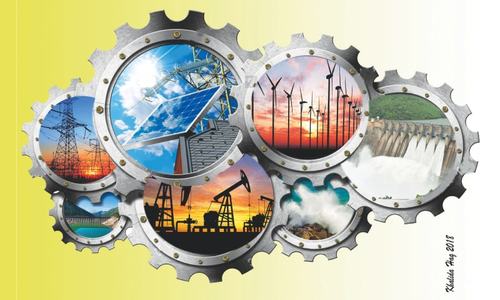Amid the global community’s escalating endeavours to tackle climate change and diminish greenhouse gas emissions, the role of coal in electricity generation has faced heightened scrutiny.
In parallel, the Lahore High Court has once again turned its attention to the critical issue of escalating smog levels in Lahore, prescribing stringent measures to combat smog, including penalties for non-compliant vehicles and brick kilns. The significant environmental implications of coal further underscore the urgency for nations to curtail their carbon footprint. Recent developments in Pakistan’s energy sector emphasise the immediate necessity to reexamine the country’s energy policies.
Pakistan’s energy landscape is at a crossroads, with a mixture of challenges and opportunities. One notable development is the active pursuit of converting two thermal power plants, each boasting a 700MW generation capacity, to utilise Thar coal as the primary fuel source, as reported by the media. These efforts, driven by the need to extend the operational life of these plants, raise significant questions about Pakistan’s energy transition.
The motivation behind this conversion lies in the existing Power Purchase Agreements (PPAs) that bind these facilities until the end of 2028. While extending the life of ageing power plants seems logical from a financial perspective, it poses critical questions about the nation’s commitment to cleaner and more sustainable energy sources.
A well-defined and comprehensive policy must underpin the country’s journey towards greener power sources
Pakistan stands at a pivotal juncture. It must balance its immediate energy needs with its long-term sustainability goals. Given the surplus production capacity in the country, there is a compelling case for discussions regarding the early retirement of these power plants. This conversation should encompass all power facilities operating under licenses issued as per the 1994 power policy. It underscores the intricate dynamics within the energy sector, where financial considerations often influence decision-making.
A well-defined and comprehensive energy policy must underpin the country’s journey towards greener energy sources. This policy should prioritise renewable energy resources, with a specific emphasis on the untapped potential of solar and hydropower. Pakistan’s geographical features make it an ideal candidate for harnessing the power of nature to meet its energy needs.
Additionally, it’s crucial to focus on improving power efficiency and reducing transmission line losses. These steps are integral components of a sustainable energy strategy. The existing grid infrastructure must be upgraded and expanded to accommodate the variable nature of renewable energy generation.
The global energy landscape is evolving with remarkable speed. One significant development is the introduction of the European Union’s Carbon Border Adjustment Mechanism (CBAM). This mechanism imposes tariffs on products based on their carbon dioxide emissions, covering sectors like steel, cement, and electricity.
The primary objective is to reduce the carbon footprint associated with imported goods and promote environmentally friendly production practices. The linkage between international trade and environmental concerns is becoming increasingly apparent.
For Pakistan, the introduction of the CBAM carries both opportunities and challenges. On one hand, it can serve as a push factor to reduce carbon emissions, promote cleaner energy sources, and align the nation’s trade practices with global sustainability goals. On the other hand, it may pose challenges to certain industries that are more carbon-intensive. However, these challenges can also serve as a catalyst for industry modernisation and greener practices.
To address these multifaceted challenges, Pakistan urgently needs a well-defined and comprehensive energy policy. This policy should prioritise the development of renewable energy resources and energy efficiency while reducing investments in fossil fuels. Identifying cost-effective financing mechanisms, including grants, concessional finance, and innovative financial instruments, is crucial to mobilise the capital needed for the transition.
One promising avenue for financing the transition away from coal is the concept of Just Energy Transition Partnerships (JETPs). These partnerships aim to align national climate goals with net-zero emissions targets and promote investments in renewable energy while managing the transition away from fossil fuels. JETP funds are designed to be targeted and catalytic, mobilising financing from multiple sources.
Moreover, a comprehensive energy transition plan needs to be formulated. This plan should outline clear targets, timelines, and sector-specific strategies for phasing out coal, promoting renewable energy, and building out enabling infrastructure, such as electricity grids. It should involve extensive stakeholder consultations and take into account environmental, social, and economic considerations.
Pakistan has set ambitious targets to reach 60 per cent of its electricity production from renewable sources and hydropower by 2030. This requires an estimated investment of $50 billion by 2030 and $80bn by 2040. Most capacity additions in the upcoming years are expected to be in hydropower, requiring an estimated investment of about $20bn.
In terms of social and environmental benefits and costs under different pathways, green jobs and emissions savings are expected to be the highest under an accelerated coal phase-out. This approach is anticipated to contribute to improved water quality and reduced groundwater contamination, particularly in regions where contamination is high.
In conclusion, Pakistan stands at a pivotal juncture, navigating a complex energy landscape. The imperative to transition to cleaner energy sources, coupled with lobbying efforts by power producers and adjustments to international trade regulations concerning carbon emissions, demands a clear and comprehensive energy policy.
This policy should not only underscore the significance of renewable energy but also prioritise efficiency improvements. By doing so, Pakistan can effectively address these challenges and play a significant role in global efforts to combat climate change. The road ahead may be challenging, but the destination is one of sustainability and a greener future.
The writer is the Pro Vice-Chancellor at Dawood University of Engineering and Technology
Published in Dawn, The Business and Finance Weekly, October 30th, 2023













































Dear visitor, the comments section is undergoing an overhaul and will return soon.